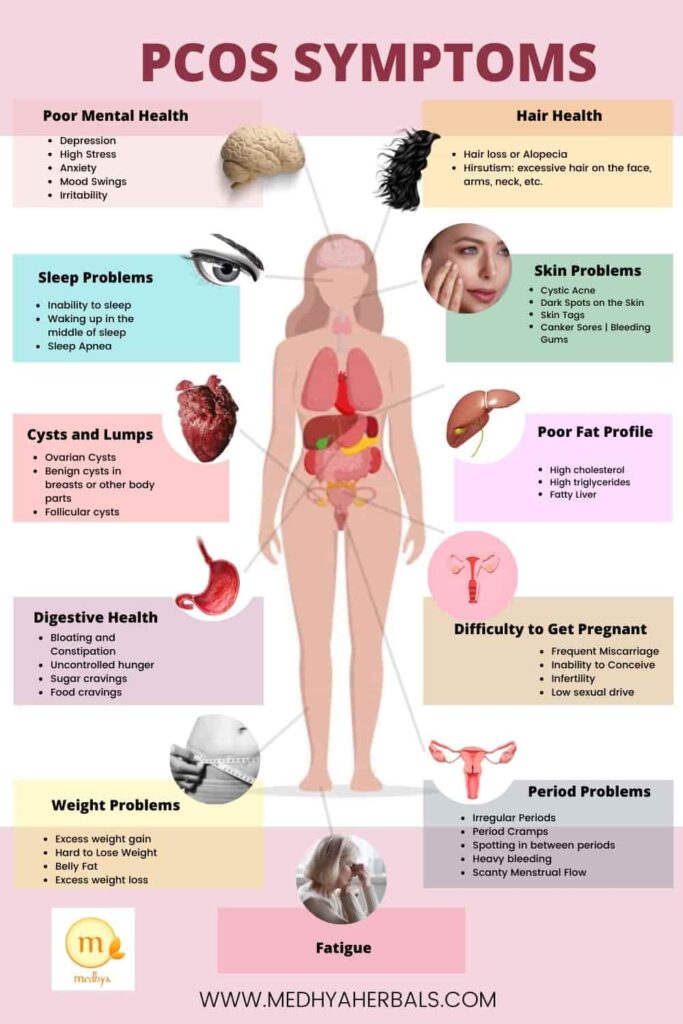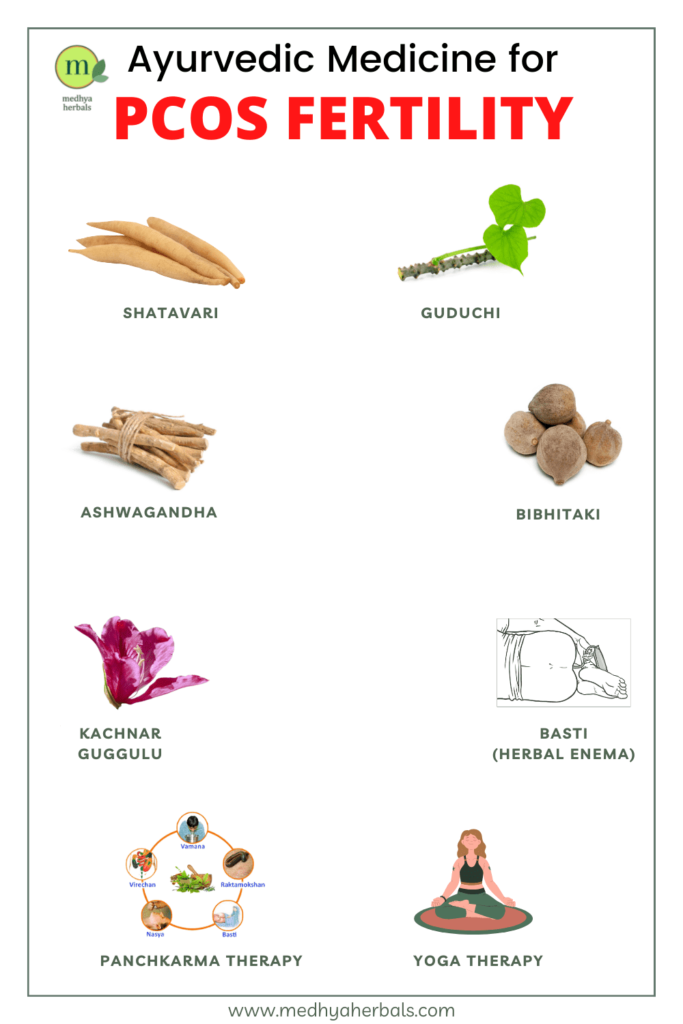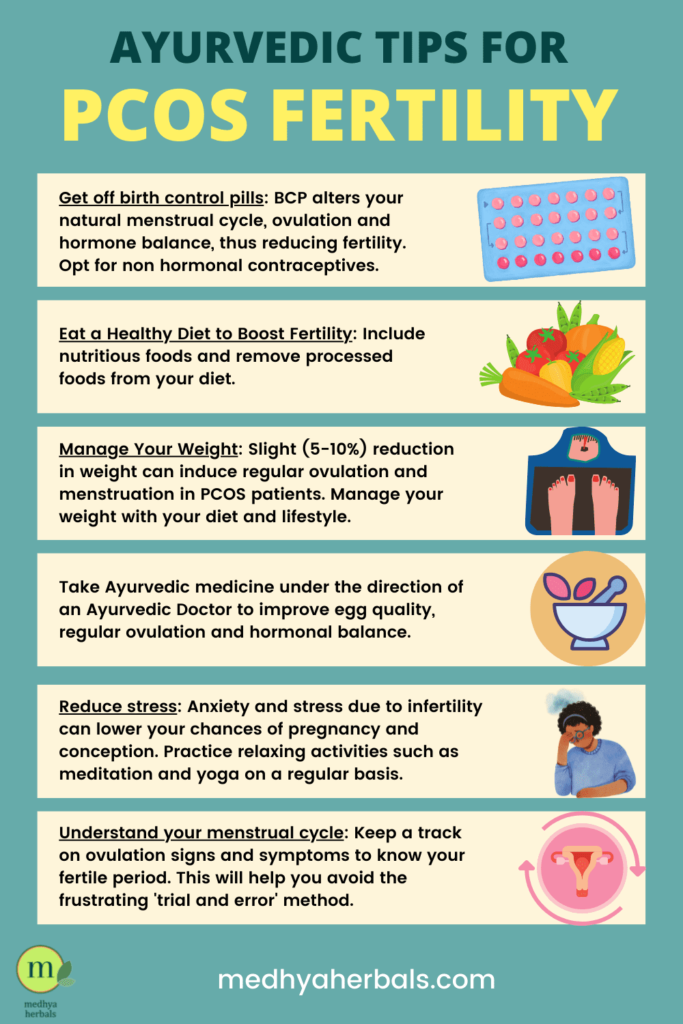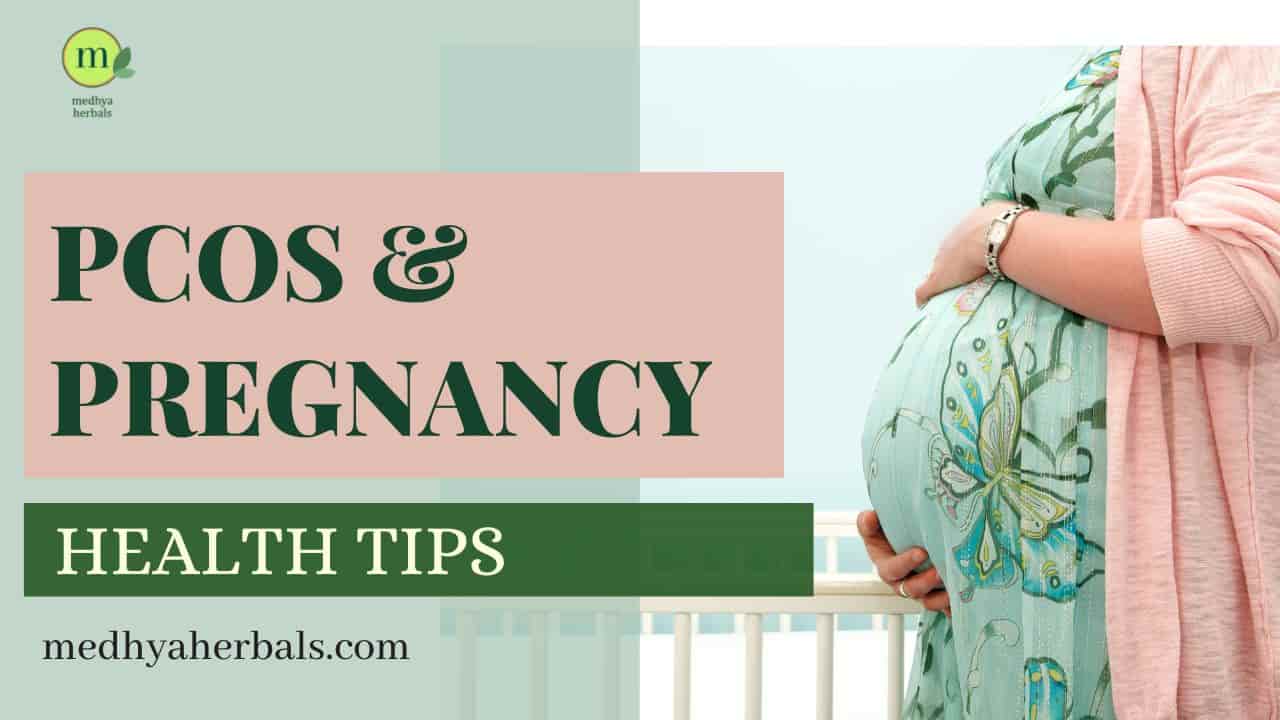PCOS and pregnancy difficulties is one of the most common concerns of women with polycystic ovarian syndrome. Not only PCOS patients struggle to get pregnant but also a large majority of PCOS pregnancies also involve health complications as compared with women without PCOS.
If you are going through challenges of pregnancy and PCOS, then you should know that there is hope. PCOS is one of the most prevalent, yet treatable, causes of infertility in women. Many women with PCOS have successful pregnancies. In fact, with the right medical care and lifestyle changes, most women with PCOS will ovulate and conceive.
Thus, when you understand what PCOS is, how it can impact your fertility and pregnancy, and thus take measures to prevent PCOS fertility issues; you can put your worries away and enjoy the experience of motherhood.
What is PCOS?
Polycystic ovary syndrome is a common hormonal condition that can affect a woman’s ability to get pregnant. PCOS occurs when the ovaries produce too many hormones. This can cause the ovaries to become enlarged and can lead to the development of small cysts on the outer edges of the ovaries. PCOS can also cause irregular menstrual cycles, making it difficult to predict when ovulation will occur.
Polycystic Ovarian Syndrome (PCOS) is one of the leading causes of fertility problems, accounting for 30% of all infertility cases. It affects 25-30% of all women of reproductive age, and that is about a fourth to a third of reproductive women.

PCOS Symptoms
The most common symptom of PCOS is the presence of ovarian cysts. These are fluid-filled sacs that develop when the ovaries produce too many eggs. The eggs are not released, and they can build up and form a cyst.
In addition to ovarian cysts, women with PCOS may also experience irregular periods, acne, weight gain, excess hair growth, and fertility problems. Some women with PCOS also have insulin resistance, which can lead to increased risks for obesity, type 2 diabetes and heart disease.

PCOS and Your Fertility
The hormonal imbalance in women with PCOS disrupts the development and release of eggs from the ovaries. In general, women with PCOS tend to have higher levels of the hormone insulin and androgens (male hormones) in their bodies. This can lead to irregular ovulation.
Irregular ovulation thus makes it difficult to predict your fertile window and plan for pregnancy. It has been found that 73% of women with PCOS have infertility due to anovulation (i.e. they do not produce eggs at all).
However, each woman’s experience with PCOS is unique. Some women with PCOS find it difficult to conceive in the first place, while others may have no trouble getting pregnant but then have a hard time staying pregnant.
Check out this post to know more about how PCOS affects fertility and Ayurvedic natural ways to overcome PCOS infertility.
How Does PCOS Affect Pregnancy?
PCOS can have a significant impact on fertility and can make it more difficult for women to become pregnant. Here are some ways that PCOS can affect pregnancy:
Increased risk of miscarriage
Since PCOS can cause the lining of the uterus to thicken, it is thus less hospitable for implantation of a fertilized egg. As a result, women with PCOS may have a higher risk of miscarrying in the early stages of pregnancy.
Gestational diabetes
Women with PCOS are at a higher risk of developing gestational diabetes during pregnancy. This is because PCOS is associated with insulin resistance, which can make it more difficult for the body to regulate blood sugar levels.
Pre-eclampsia
Women with PCOS are at a higher risk of developing pre-eclampsia during pregnancy. Pre-eclampsia is a serious condition that can cause high blood pressure, protein in the urine, organ damage, and other complications. This condition can be dangerous for both mother and child, and can even lead to premature birth.
Premature birth
Women with PCOS are at a higher risk of giving birth prematurely. Premature birth can lead to a range of health problems for the baby, including respiratory distress syndrome and developmental delays.
C-section delivery
Women with PCOS are more likely to require a C-section delivery compared to women without PCOS. This is because PCOS can cause a range of complications during pregnancy and also may lead to babies that larger than anticipated for their gestational age, which can make vaginal delivery more difficult.
Health Risks to New Born
Babies born to women with PCOS often have weaker immunity and premature birth, thus there are higher chances of them being admitted to a newborn intensive care unit NICU.
To minimize the risks associated with PCOS during pregnancy, it is important for women with PCOS to receive proper prenatal care. This may involve regular check-ups with a healthcare provider, monitoring of blood sugar levels, and other interventions as needed. With proper management, many women with PCOS are able to have healthy pregnancies and give birth to healthy babies.
Ayurvedic Natural Ways for Supporting Healthy Pregnancy in PCOS
When it comes to PCOS and pregnancy, Ayurveda recognizes that the condition is often related to an imbalance in the Kapha dosha. This can lead to excess weight gain, insulin resistance, and hormonal imbalances that affect fertility and pregnancy.
To support healthy pregnancy in PCOS, Ayurveda focuses on reducing Kapha and balancing other doshas as well. This can be achieved through a combination of dietary changes, lifestyle practices, and herbal remedies.
One of the key principles of Ayurveda for PCOS and pregnancy is promoting hormonal balance and reduce stress. Ayurvedic herbs such as Shatavari and Ashwagandha and Ayurvedic practices such as yoga, meditation, and self-massage can help to achieve a healthy pregnancy with PCOS.

Diet is also a crucial component of Ayurvedic treatment for PCOS and pregnancy. Ayurveda recommends a warm, cooked, and nourishing diet that is tailored to a person’s dosha. This can include foods such as whole grains, legumes, and vegetables, as well as specific spices and herbs that support digestion and hormonal balance.
In addition to these principles, Ayurveda also emphasizes the importance of detoxification and purification. This can be achieved through practices such as oil pulling, herbal remedies, and seasonal cleansing.
By applying these Ayurvedic principles for supporting healthy pregnancy in PCOS, women can improve their fertility, reduce the symptoms of PCOS, and promote a healthy pregnancy. However, it’s important to consult with a qualified Ayurvedic practitioner to develop a personalized treatment plan that takes into account your individual needs and constitution.

Health Tips for PCOS and Pregnancy Success
If you are pregnant and have been diagnosed with PCOS, it is important to take some precautionary measures. These health tips will help you to reduce your risk of miscarrying and improve your chances of a successful healthy pregnancy.
- Make sure to monitor your blood sugar levels carefully, as PCOS can increase your risk of developing gestational diabetes during pregnancy.
- Eat a healthy diet and get regular exercise, as this will help to regulate your hormone levels and maintain a healthy weight.
- Consider natural remedies: Ayurvedic herbs and remedies, as well as other natural approaches such as acupuncture, may help to support fertility and pregnancy in women with PCOS. Consult with a qualified practitioner to determine which remedies may be appropriate for you.
- Reach a healthy BMI before you conceive. If you are overweight or obese, losing weight can help to improve your fertility and reduce your risk of complications during pregnancy.
- Make sure to take herbal dietary supplements, as PCOS can cause deficiencies in certain nutrients, such as folic acid, Iron and Magnesium.
- Be sure to see your doctor regularly throughout your pregnancy so that any potential complications can be monitored and treated.
- Get plenty of rest and sleep, as fatigue can worsen the symptoms of PCOS. Get enough sleep: Sleep is essential for hormone regulation and overall health. Aim for 7-9 hours of sleep each night, and establish a regular sleep routine.
What Not to Do When Pregnant with PCOS
- Manage stress: Stress can exacerbate the symptoms of PCOS and interfere with fertility and pregnancy. Find ways to manage stress, such as through yoga, meditation, or counseling.
- Avoid strenuous workouts and do not lift excessive weight.
- Don’t smoke or use drugs: Smoking and drug use during pregnancy can increase the risk of pregnancy complications and harm your baby’s health. If you need help quitting smoking or drugs, talk to your healthcare provider or a support group.
- Don’t consume alcohol: Alcohol can harm your baby’s development and increase the risk of birth defects. It’s important to avoid alcohol completely during pregnancy.
- Don’t ignore symptoms of complications: Women with PCOS are at higher risk for gestational diabetes, pre-eclampsia, and other complications. Be aware of the symptoms of these conditions, such as high blood pressure and excessive swelling, and seek medical attention if you experience them.
- Don’t eat a high-sugar diet: Women with PCOS are more likely to develop gestational diabetes, which can harm your baby’s health. Avoid high-sugar foods and focus on a balanced diet of whole foods.
By following these steps, you can help to ensure a healthy pregnancy despite having PCOS.
Takeaway
According to studies, the success rate of pregnancy with PCOS is about 30-40%. However, the chances of success may be higher if PCOS is diagnosed early and treated properly. Ayurvedic medicine can provide relief from the symptoms of PCOS and help to improve fertility. Herbal supplements, dietary changes, and stress-reduction techniques are all part of an holistic approach to treating PCOS.
If you are struggling with PCOS and pregnancy difficulties, consider Ayurvedic treatment for PCOS at Medhya Herbals. Our Ayurvedic doctors will develop your personalized fertility treatment plan to naturally conceive and increase your chances of having a healthy pregnancy.
FAQ
What is the best age to get pregnant with PCOS?
Age is an important factor to consider when trying to conceive with PCOS. The best age to get pregnant with PCOS is between 20-30. This is because the ovaries are more responsive to stimulation during this time and there is a lower risk of developing ovarian cancer. Additionally, fertility treatments are more likely to be successful in this age range. However, it is still possible to conceive with PCOS after the age of 30. Women over the age of 35 may have a higher risk of miscarrying, but there are still many success stories of women conceiving at this age. The most important thing is to work with a fertility specialist who can tailor a treatment plan specifically for you.
Is it okay to get pregnant with PCOS?
Polycystic ovary syndrome (PCOS) is a hormonal disorder that can affect fertility. Women with PCOS may have infrequent or prolonged menstrual periods, irregular ovulation, and small cysts on their ovaries. While there is no cure for PCOS, it can be managed with medication and lifestyle changes. Many women with PCOS are able to get pregnant with treatment. In some cases, fertility treatments such as in vitro fertilization (IVF) may be necessary. If you have PCOS and are trying to get pregnant, it is important to work with a doctor who is familiar with the condition. With proper treatment, you can increase your chances of conceiving and having a healthy pregnancy.
Describe first trimester of pregnancy with pregnancy?
The first three months of pregnancy are a crucial time for the development of the baby. Although the baby is very tiny, all of its organs and systems are beginning to form. The heart begins to beat, and the brain and nervous system start to develop. The mother’s body also undergoes significant changes during this time. The hormone levels rise sharply, and the breasts may become larger and more tender. The uterus expands, and the navel may protrude slightly as the abdomen stretches. fatigue is also common during pregnancy, as the body adjusts to the new demands placed on it. Although these changes can be exhausting, they are all part of the natural process of pregnancy.
How long does it take to get pregnant with PCOS?
PCOS is a common endocrine disorder that affects women of reproductive age. The main features of PCOS are high levels of insulin, abnormal ovulation, and polycystic ovarian syndrome. PCOS can interfere with a woman’s ability to become pregnant. Ayurvedic medicine has been used to treat PCOS for centuries. One of the main goals of Ayurvedic treatment for PCOS is to restore ovulation and normalise the function of reproductive system for natural conception. This is often done by using herbs and other natural remedies to improve insulin sensitivity and regulate hormone levels. If there are no health complications or structural problems with the reproductive organs, women with PCOS can successfully conceive in between 3-9 months with Ayurvedic treatment at Medhya Herbals.
References
Polycystic ovary syndrome and pregnancy – From a clinical perspective
Pregnancy-related outcomes for women with polycystic ovary syndrome

